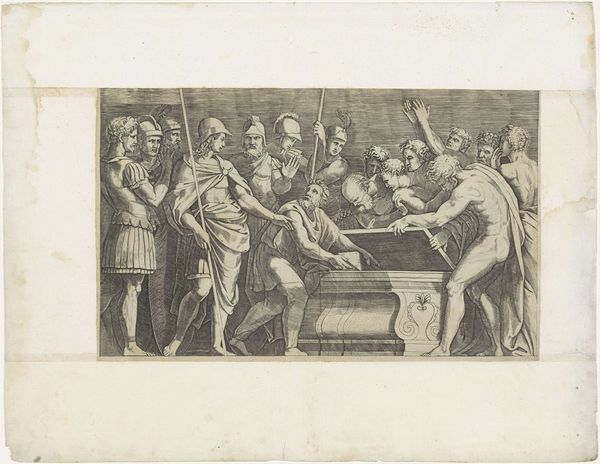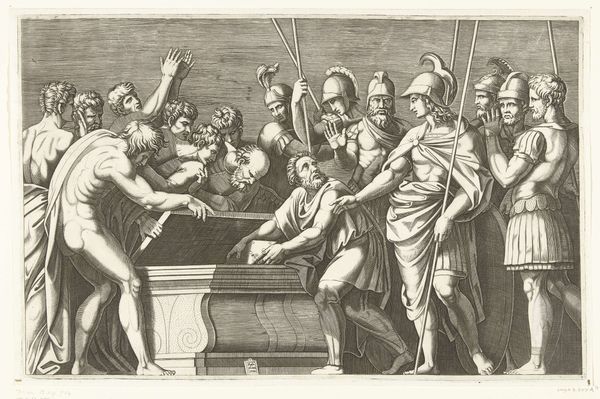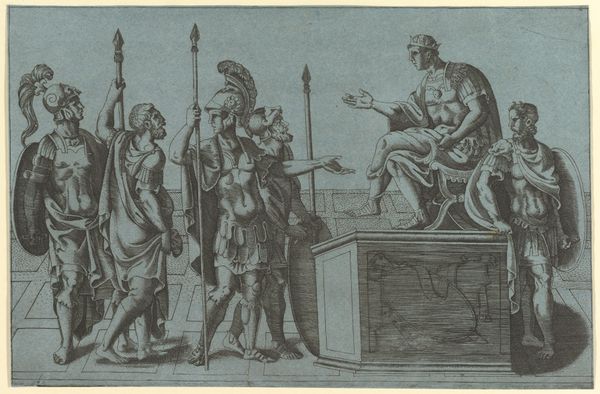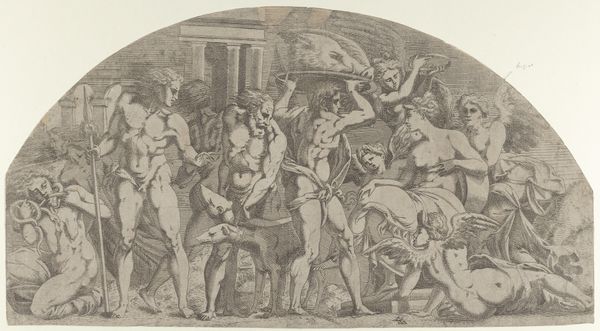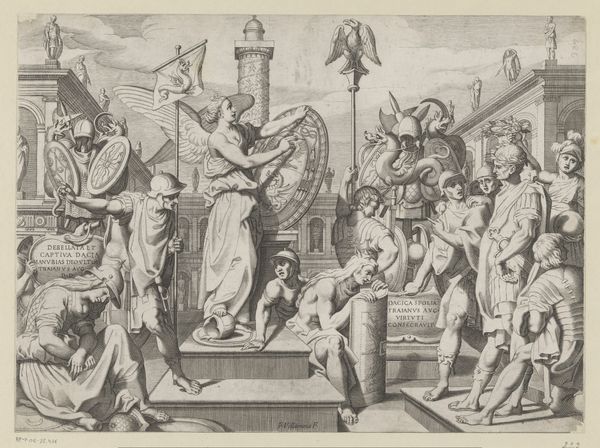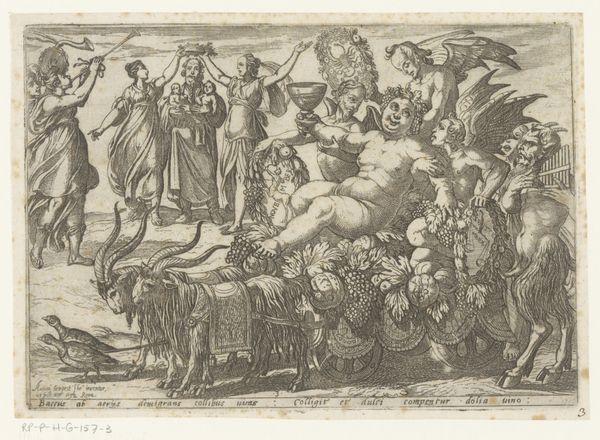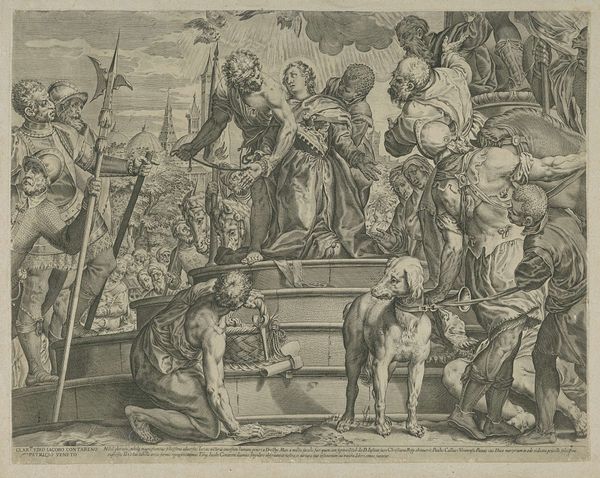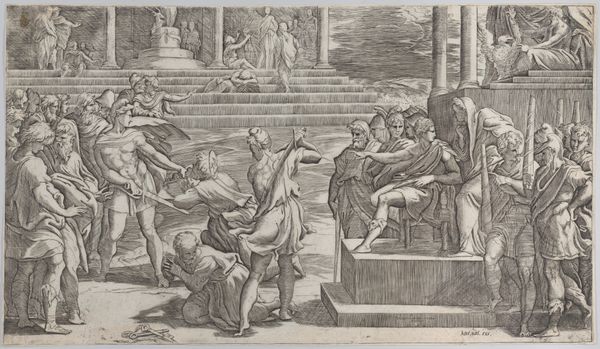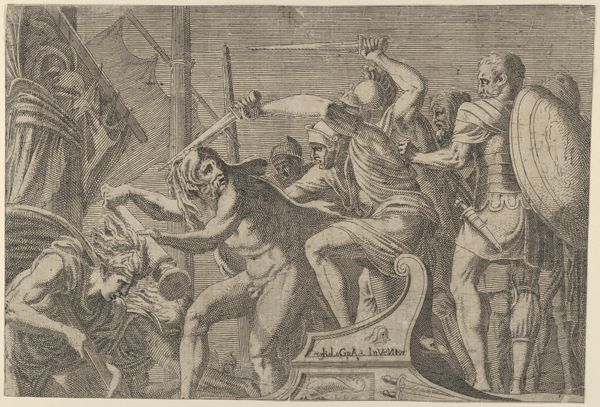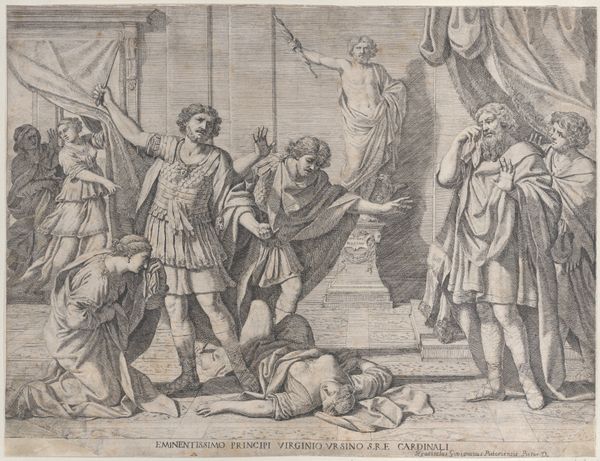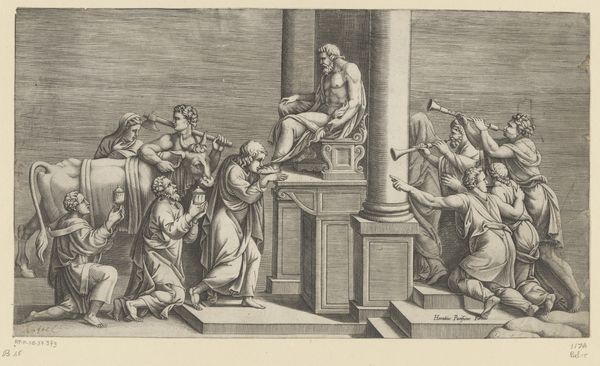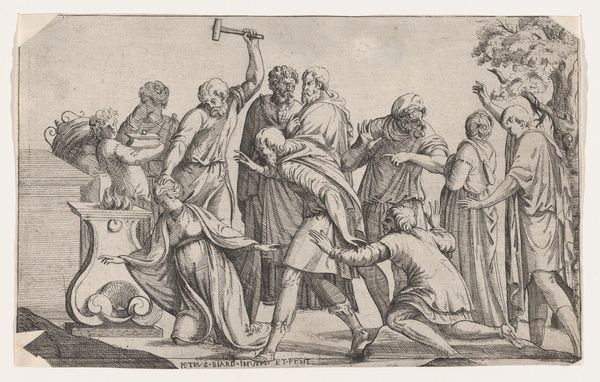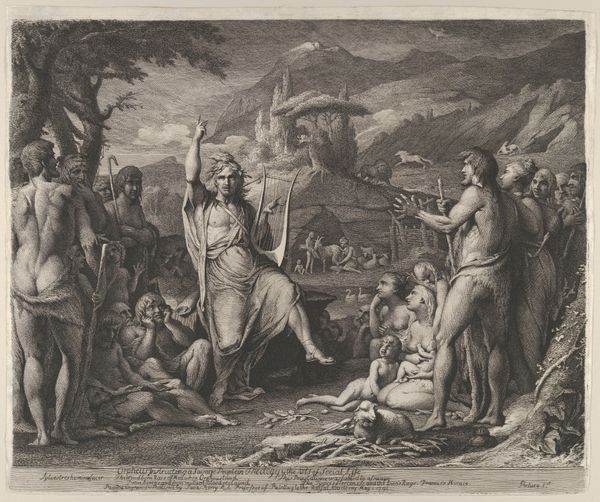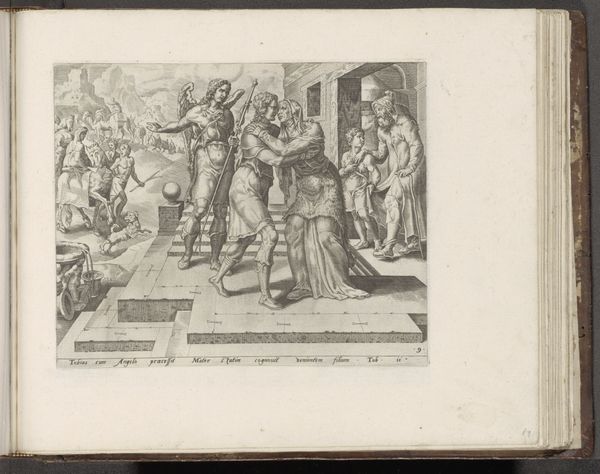
Alexander the Great commanding that the work of Homer be placed in the tomb of Achilles 1495 - 1505
0:00
0:00
drawing, print, etching
#
drawing
#
narrative-art
# print
#
etching
#
figuration
#
history-painting
#
italian-renaissance
Dimensions: Sheet: 9 11/16 × 15 13/16 in. (24.6 × 40.1 cm)
Copyright: Public Domain
Curator: Here we have an etching dating back to the late 15th or early 16th century, made by an anonymous Italian Renaissance artist. It's entitled "Alexander the Great commanding that the work of Homer be placed in the tomb of Achilles". Editor: Wow, it's all very...gray. Very serious! Like a scene from a play, and everyone's striking a dramatic pose. The level of detail is astounding. What's it made of? Curator: This artwork is a print, an etching to be precise, so it would have been created by incising lines into a metal plate, inking it, and then pressing it onto paper. A relatively novel method at the time! Editor: There's something about seeing these historical moments rendered with such precision—it almost makes them feel less like grand pronouncements and more like… well, like a Renaissance-era photo op. Alexander, the influencers of the ancient world. Curator: I think you touch on a point: The image portrays Alexander as a patron of culture and wisdom, placing Homer's writings within Achilles’s tomb, thus associating himself with both military prowess and intellectual pursuit. Editor: But does it humanize Achilles or mythologize Alexander? I feel a strong contrast in the expressions—some reverent, others... almost bored? Perhaps it tells us how the artist views those heroic narratives? The casual observer, then, and now? Curator: It's worth considering the historical context, where these images also acted as assertions of cultural lineage. Displaying Alexander as an enlightened figure who honors past heroes legitimized rulers in Renaissance Italy who often styled themselves on ancient Roman ideals. Editor: Yes, a direct line to greatness, impeccably sourced, I understand the idea. It leaves me feeling thoughtful about legacy, reputation—the stories we choose to tell, the echoes that reverberate, whether by Homer or Alexander. Curator: I’m intrigued by how it invites us to engage in similar meaning-making. What do we value enough to immortalize? What is truly important for future generations to remember? Editor: A fascinating paradox; an early modern print immortalizing an ancient gesture toward literary immortality. Definitely makes me ponder.
Comments
No comments
Be the first to comment and join the conversation on the ultimate creative platform.
